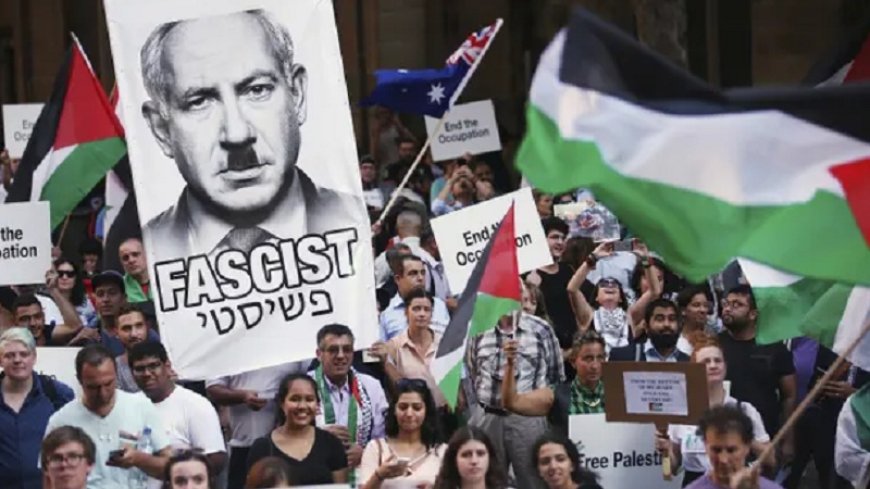The Gaza war and increasing challenges within the Zionist regime
Continuing the war of the illegal Zionist regime of Israel against the Gaza Strip has increased the challenges within the violent regime.

106 days have passed since the beginning of the war of the Zionist regime against the Gaza Strip. Until now, the war has caused many and great disasters for the Palestinians, but even the Zionist regime has also suffered several losses from the war. Among those losses are economic, social and political. On the economic side, the 106 days of war have caused great losses to the Zionist regime. In its new report, the Economist wrote the following about the effects of the Gaza war on the Israeli economy: "the negative and destructive effects of this war will continue to destabilize the security and economic situation of the Israeli regime for many years to come". The newspaper went on to explain in its report that: "the huge economic costs of the Gaza war, not only reached four billion five hundred million dollars in December - equivalent to one percent of the National GDP - but also led to a decrease in 8% tax revenue in 2023".
Another important point from an economic point of view is that the effects of the war are not only related to the period of the war, but in this year 2024 and the following, they will have many negative effects on the economy of that administration. The Economist has written, "the economy of the Israeli regime will have to cover the costs of the war for years and years even after the end of this war". Bank JP Morgan Chase recently wrote in its report that: "the size of the Israeli economy will decrease by 11% in the last quarter of this year (2024) due to the war in Gaza". The last time the economic decline of the Zionist regime of Israel was witnessed was in the year 2020 after the spread of the Corona virus. Some analysts show that the effects of the Gaza war on the economy of the brutal Israeli regime will be greater than the negative effects caused by the corona virus on the economy of that regime. On the social side, the occupied Palestinian territories under the false name of Israel are witnessing protests by the families of the Zionist captives against Benjamin Netanyahu's cabinet.
On Thursday, the 18th of January, the families of the Zionist hostages blocked the Ayalon highway in Tel Aviv as a sign of complaining about the lack of attention to the issue of their hostages. Netanyahu's Cabinet has decided to use only one way to free the Zionist hostages, and that is to continue the war against Gaza. This is despite the fact that, in the last 106 days, only 70 Zionist hostages were released; and their liberation was not achieved by the forces of war. In fact, the Zionist regime could not find its captives through war, but had to stop the war for seven days, and within that time its 70 captives were released. Right now the Israeli war cabinet is trying to use every military method to free its hostages, while it has not succeeded in identifying even where the hostages were kept. It is for this reason, that the families of the hostages decided to march to express their concerns about the health of their hostages and their dissatisfaction with the performance of Netanyahu's cabinet. On the political side, apart from the growing rift between the people and Netanyahu's cabinet, the calls and pressures of the people and the critics to ask the prime minister to step down from power have also increased. As a result of the Gaza war, Netanyahu's cabinet is in the most volatile situation it has seen in a year now.
Leaders of various countries in the world have continued to oppose and criticize the statements made by the Prime Minister of Israel, Benjamin Netanyahu, opposing the issue of official recognition of the independent state of Palestine. In that stream, the Head of the Foreign Affairs Committee of the British Parliament has condemned Netanyahu's statement saying that it is dangerous. It is after the Prime Minister of the Zionist administration of Israel, Benjamin Netanyahu, officially announced last Thursday that he opposes the establishment of an independent Palestinian state after the end of the Gaza war. He claimed that all lands west of the Jordan River should be under the security control of the Israeli government. The head of the Foreign Affairs Committee of the British Parliament, Elisha Kearns, has told the London Standard newspaper that Netanyahu's government's remarks are divisive and dangerous. Elisha Kearns added: "Netanyahu's blatant refusal to recognize the rights of the Palestinian people undermines the support of allies, provokes neighbors and keeps us away from peace."
Meanwhile, Brendan O'Hara, foreign relations spokesman for the Scottish National Party, has called on the leaders of the two main British parties to officially recognize the independent state of Palestine as soon as possible. Likewise, a group of Jewish lawmakers in the US House of Representatives has opposed the statement of the Prime Minister of Israel, Benjamin Netanyahu, who has refused to establish a Palestinian state in the future. Josep Burrell, the European Union's foreign policy chief, has also accused the Israeli Prime Minister of undermining efforts to resolve the conflict with Palestine. on the other hand, Stephen Dujarric, the United Nations Spokesman has said that the army of the brutal Israeli regime is preventing the delivery of more humanitarian aid to the north of Gaza. Regarding Israel's war crimes in Gaza, Dujarric also said: The Secretary General of the United Nations has always strongly condemned attacks against civilians and infrastructure. The Palestinian Ministry of Health has announced that more than 24,700 Palestinians have been martyred and 62,000 and 108 others have been injured so far in the brutal attacks carried out by Israel against the people of Gaza.













































